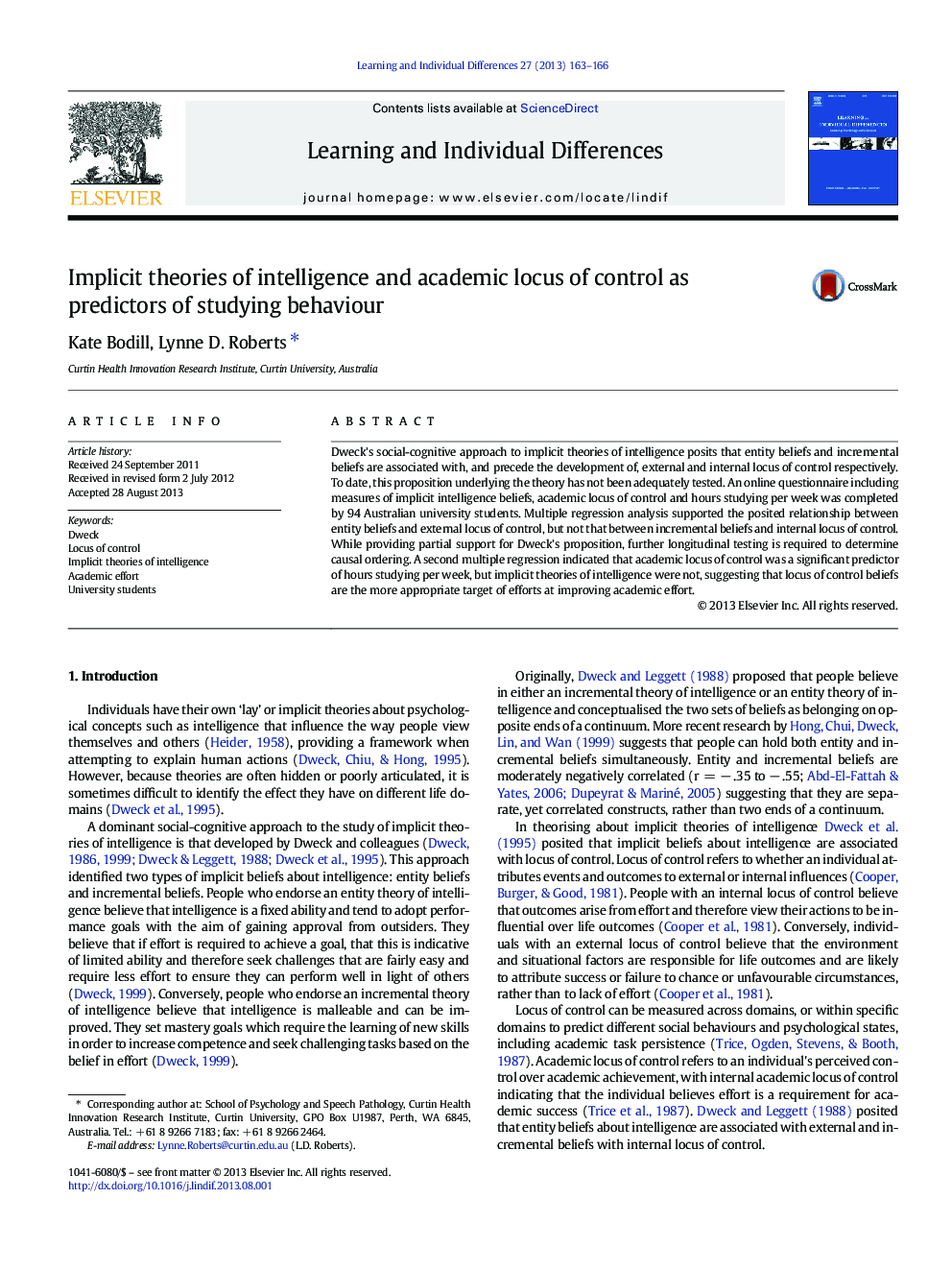| Article ID | Journal | Published Year | Pages | File Type |
|---|---|---|---|---|
| 364754 | Learning and Individual Differences | 2013 | 4 Pages |
•Dweck posited that implicit theories precede the development of locus of control.•Entity beliefs about intelligence significantly predicted external academic locus of control.•Incremental beliefs about intelligence were not related to academic locus of control.•Internal locus of control predicted study behaviour, but implicit theories did not.
Dweck's social-cognitive approach to implicit theories of intelligence posits that entity beliefs and incremental beliefs are associated with, and precede the development of, external and internal locus of control respectively. To date, this proposition underlying the theory has not been adequately tested. An online questionnaire including measures of implicit intelligence beliefs, academic locus of control and hours studying per week was completed by 94 Australian university students. Multiple regression analysis supported the posited relationship between entity beliefs and external locus of control, but not that between incremental beliefs and internal locus of control. While providing partial support for Dweck's proposition, further longitudinal testing is required to determine causal ordering. A second multiple regression indicated that academic locus of control was a significant predictor of hours studying per week, but implicit theories of intelligence were not, suggesting that locus of control beliefs are the more appropriate target of efforts at improving academic effort.
